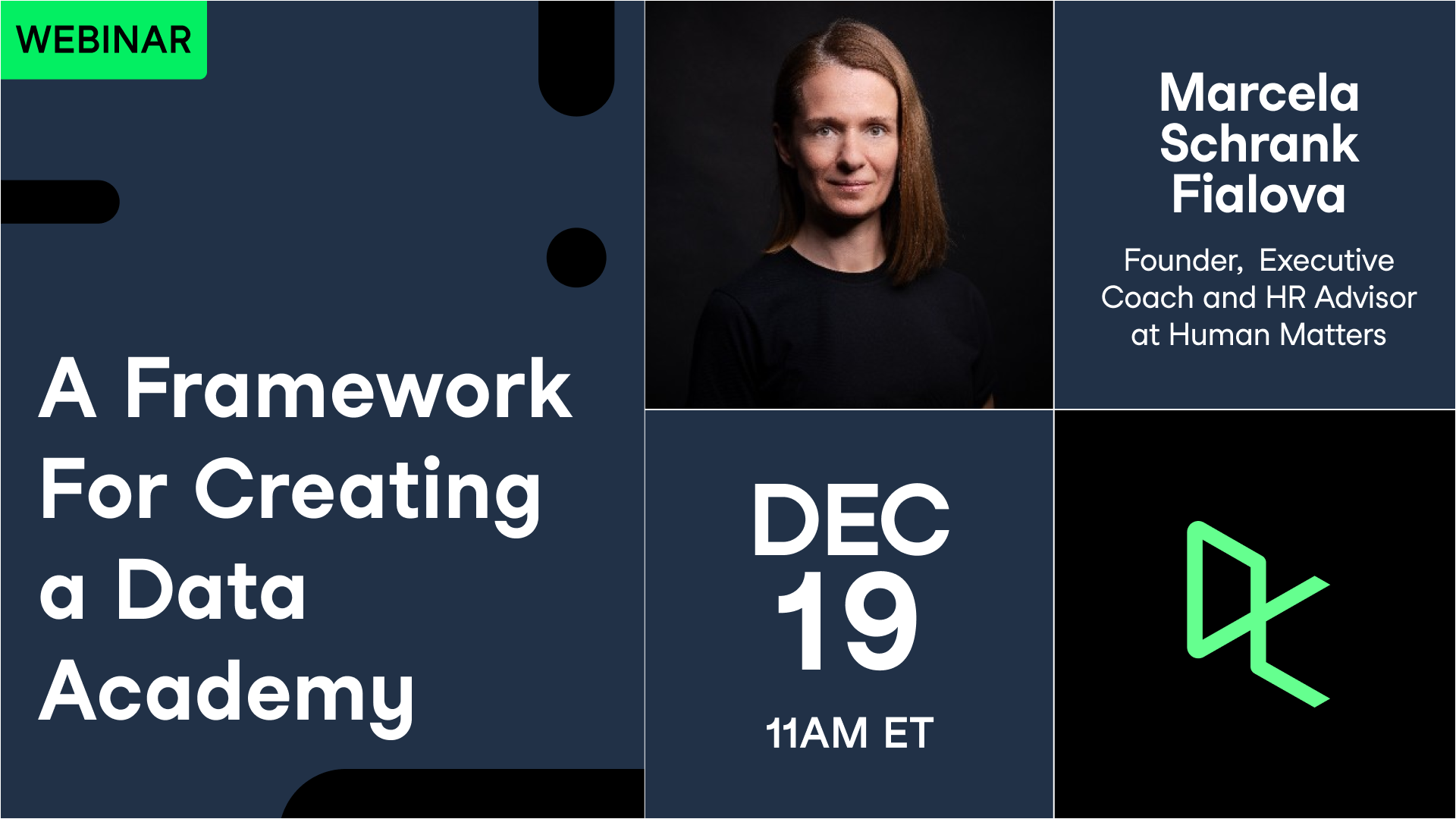Skip to main content
Related
white paper
5 Best Practices for Building Data Science Skills Academies
Best practices and expert advice on setting up an in-house skills academywebinar
Building an Internal Data Skills Academy
This webinar will cover the key steps for building an internal data academy, including defining learning paths, securing executive support, defining learning personas, scaling learning communities, and much more.webinar
Building an Internal Data Skills Academy
This webinar will cover the key steps for building an internal data academy, including defining learning paths, securing executive support, defining learning personas, scaling learning communities, and much more.webinar
Scaling Data & AI Literacy with a Persona-Driven Framework
In this session, three experts walk you through the steps of creating a successful data training program.webinar
Scaling Data & AI Literacy with a Persona-Driven Framework
In this session, three experts walk you through the steps of creating a successful data training program.webinar

